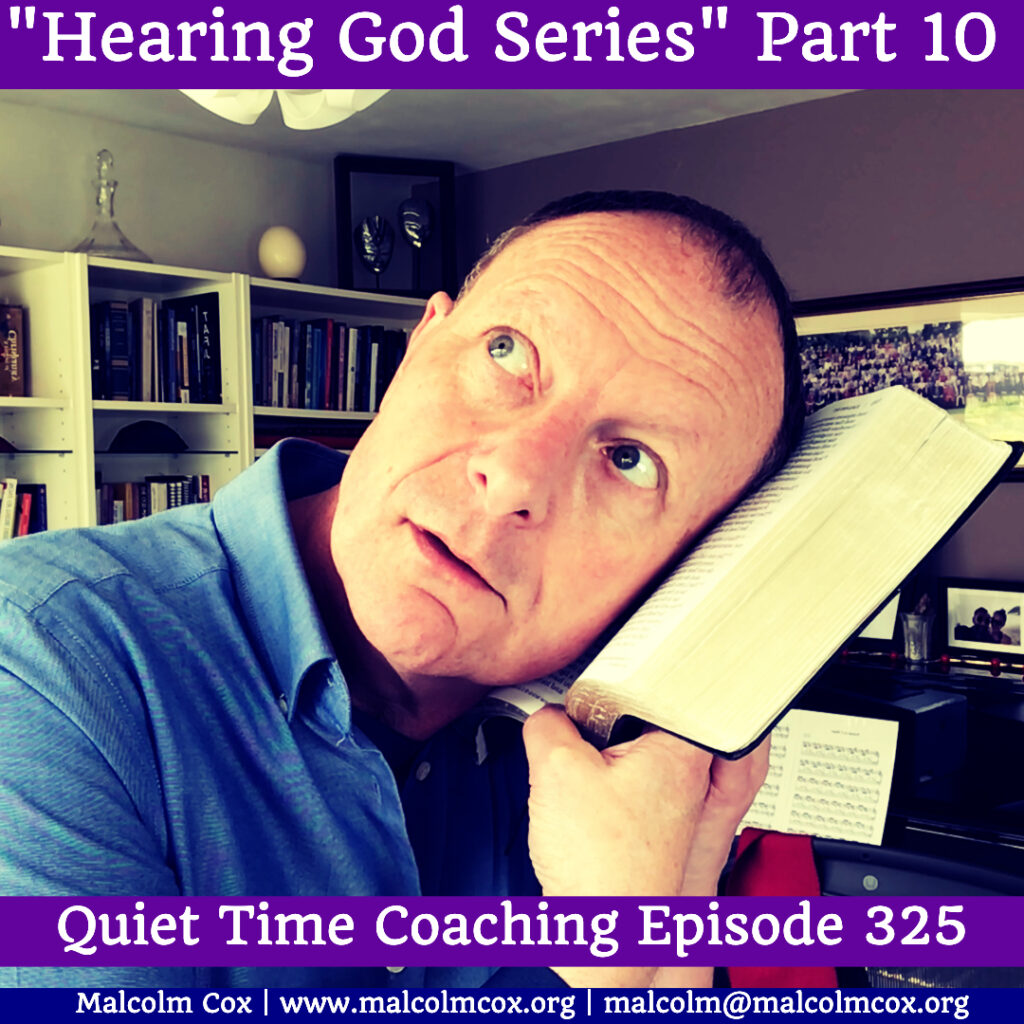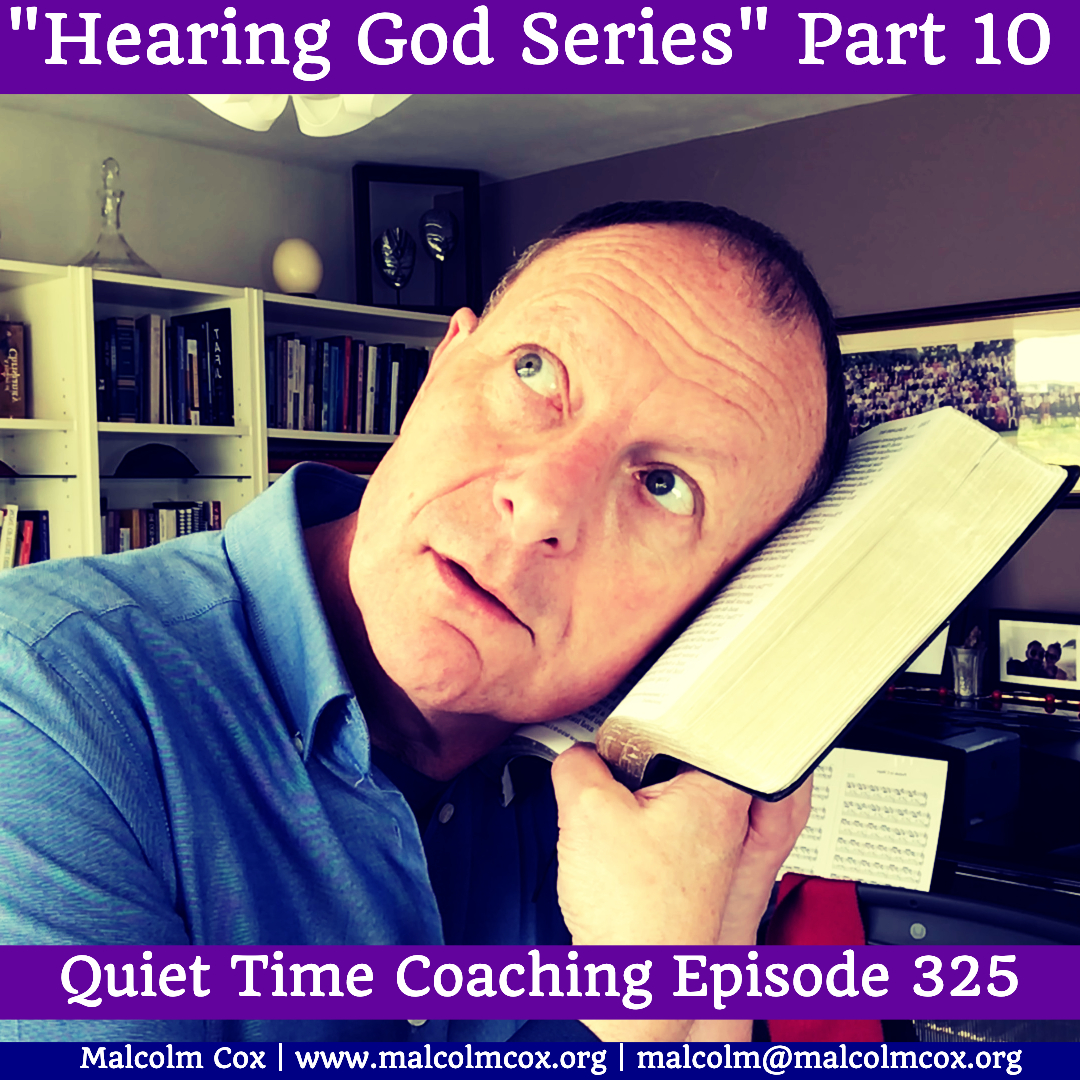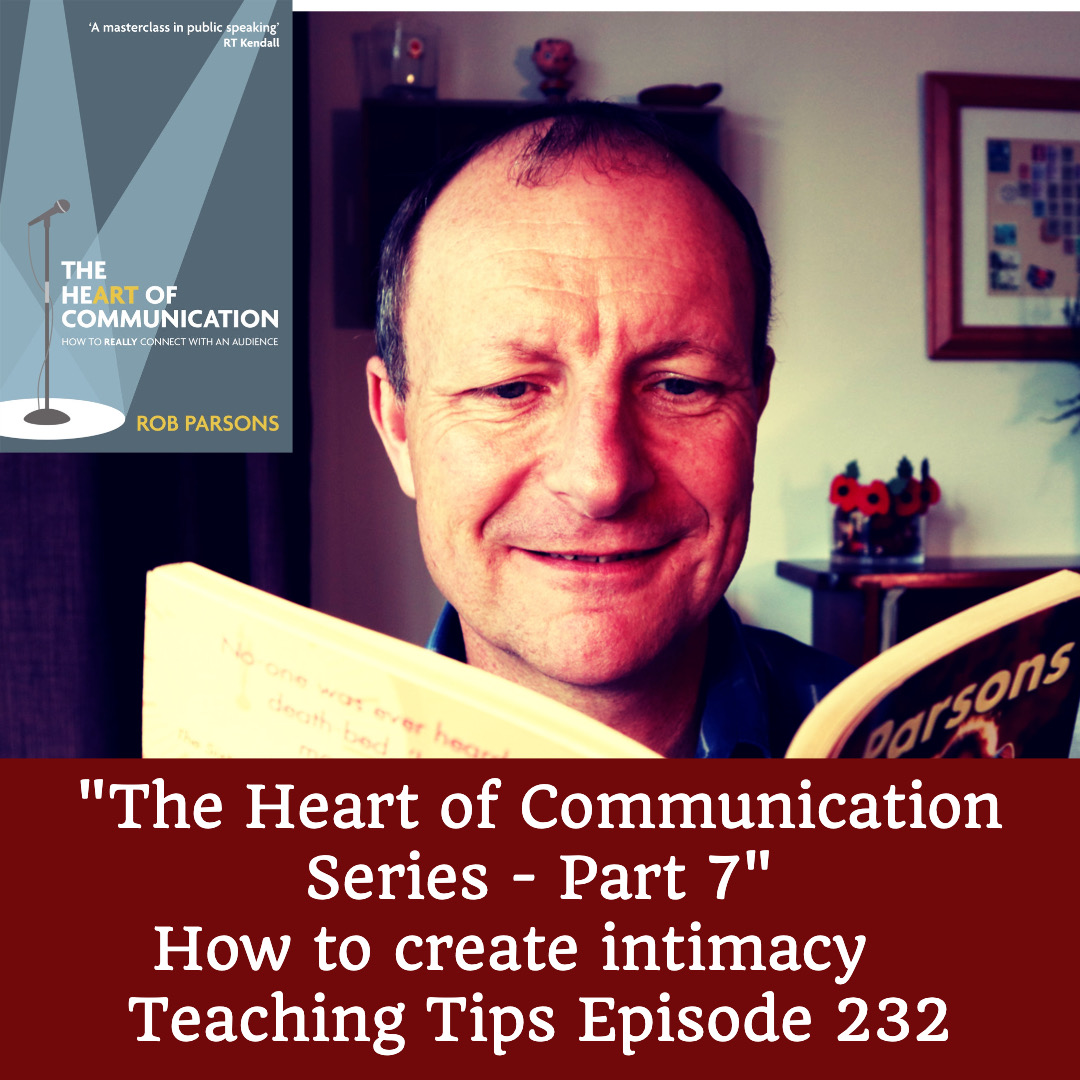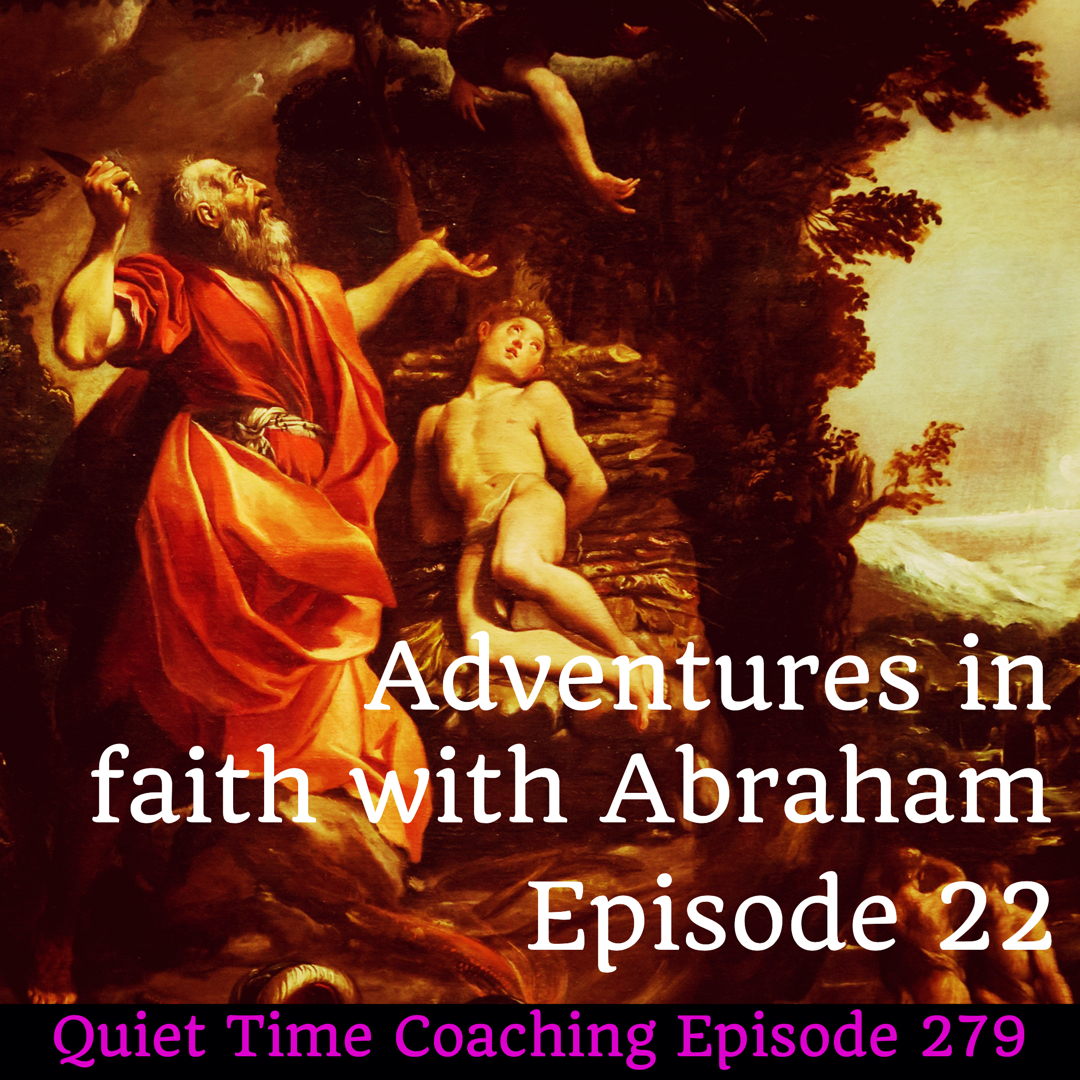
Hearing God: Developing a Conversational Relationship with God; Dallas Willard
Today we look at chapter 9 of the book which is titled “A life more than guidance”.
The more we understand, the better our relationship with God will be
“Faith is not opposed to knowledge; it is opposed to sight.” 194
The framework for our answers
God is capable of accurate speech, we are not always capable of accurate understanding or hearing. This is not a fault of the speaker, and, does not mean he will give up trying.
It is our responsibility to learn how to hear better
“If anyone has ears to hear, let them hear.” “Consider carefully what you hear,” he continued. “With the measure you use, it will be measured to you—and even more. Whoever has will be given more; whoever does not have, even what they have will be taken from them.”” (Mark 4:23–25 NIV11)
Do we want to hear from God?
Listening for God
“I get down on my knees and say, ‘Lord, I need to know what you want me to do, and I am listening. Please speak to me through my friends, books, magazines I pick up and read, and through circumstances.'” James Dobson, 189
After praying for the ability to listen, it’s a good idea not to get too busy for a while afterwards.
This is not a gimmick.
King Saul tried to force a word from God
“The Philistines assembled to fight Israel, with three thousand chariots, six thousand charioteers, and soldiers as numerous as the sand on the seashore. They went up and camped at Mikmash, east of Beth Aven. When the Israelites saw that their situation was critical and that their army was hard pressed, they hid in caves and thickets, among the rocks, and in pits and cisterns. Some Hebrews even crossed the Jordan to the land of Gad and Gilead. Saul remained at Gilgal, and all the troops with him were quaking with fear. He waited seven days, the time set by Samuel; but Samuel did not come to Gilgal, and Saul’s men began to scatter. So he said, “Bring me the burnt offering and the fellowship offerings.” And Saul offered up the burnt offering. Just as he finished making the offering, Samuel arrived, and Saul went out to greet him. “What have you done?” asked Samuel. Saul replied, “When I saw that the men were scattering, and that you did not come at the set time, and that the Philistines were assembling at Mikmash, I thought, ‘Now the Philistines will come down against me at Gilgal, and I have not sought the LORD’S favor.’ So I felt compelled to offer the burnt offering.” “You have done a foolish thing,” Samuel said. “You have not kept the command the LORD your God gave you; if you had, he would have established your kingdom over Israel for all time. But now your kingdom will not endure; the LORD has sought out a man after his own heart and appointed him ruler of his people, because you have not kept the LORD’S command.” Then Samuel left Gilgal and went up to Gibeah in Benjamin, and Saul counted the men who were with him. They numbered about six hundred.”
“He inquired of the LORD, but the LORD did not answer him by dreams or Urim or prophets. Saul then said to his attendants, “Find me a woman who is a medium, so I may go and inquire of her.” “There is one in Endor,” they said. So Saul disguised himself, putting on other clothes, and at night he and two men went to the woman. “Consult a spirit for me,” he said, “and bring up for me the one I name.” But the woman said to him, “Surely you know what Saul has done. He has cut off the mediums and spiritists from the land. Why have you set a trap for my life to bring about my death?” Saul swore to her by the LORD, “As surely as the LORD lives, you will not be punished for this.” Then the woman asked, “Whom shall I bring up for you?” “Bring up Samuel,” he said. When the woman saw Samuel, she cried out at the top of her voice and said to Saul, “Why have you deceived me? You are Saul!” The king said to her, “Don’t be afraid. What do you see?” The woman said, “I see a ghostly figure coming up out of the earth.” “What does he look like?” he asked. “An old man wearing a robe is coming up,” she said. Then Saul knew it was Samuel, and he bowed down and prostrated himself with his face to the ground. Samuel said to Saul, “Why have you disturbed me by bringing me up?” “I am in great distress,” Saul said. “The Philistines are fighting against me, and God has departed from me. He no longer answers me, either by prophets or by dreams. So I have called on you to tell me what to do.” Samuel said, “Why do you consult me, now that the LORD has departed from you and become your enemy? The LORD has done what he predicted through me. The LORD has torn the kingdom out of your hands and given it to one of your neighbors—to David. Because you did not obey the LORD or carry out his fierce wrath against the Amalekites, the LORD has done this to you today. The LORD will deliver both Israel and you into the hands of the Philistines, and tomorrow you and your sons will be with me. The LORD will also give the army of Israel into the hands of the Philistines.””
(1 Samuel 13:5–23; 28:6–19 NIV11)
Deciding “on your own”
If there is no communication from God it does not mean we are unworthy.
He may want us to take a decision without his input. His will could be that we decide.
“We may insist on having God tell us what to do because we live in fear or are obsessed with being right as a strategy for being safe.” 205
The perfect will of God
If God is not telling, it may mean it doesn’t matter. God knows how to give good gifts to the children, Luke 11:30.
Gods perfect will could allow for a lot of different options.
“Human initiative is not cancelled by redemption; it is heightened by immersion in the flow of God’s life.” 208
A formula for living with God’s voice
There is no such thing
Foundational steps:
1. Desire to grow to discover what God desires
2. Use the Spirit’s power to serve
Steps to hearing God
1. Meditate on the Scriptures to find the right way to live
2. Be alert to what is happening in our lives
3. Talk to God Often and specifically
4. Make a plan for listening for God
5. When God does not speak:
Ask him if it’s to do with some problem in you
Ask others what they think
Put right anything you find wrong
If there is no wrong do what seems best to you within God’s will and principles
Next week we will go on to look at the epilogue of the book.
Please add your comments on this week’s topic. We learn best when we learn in community.
Do you have a question about teaching the Bible? Is it theological, technical, practical? Send me your questions or suggestions. Here’s the email: [malcolm@malcolmcox.org](mailto:malcolm@malcolmcox.org).
If you’d like a copy of my free eBook on spiritual disciplines, “How God grows His people”, sign up at my website: http://[www.malcolmcox.org](http://www.malcolmcox.org/).
Please pass the link on, subscribe, leave a review.
“Worship the LORD with gladness; come before him with joyful songs.” (Psalms 100:2 NIV11)
God bless, Malcolm


